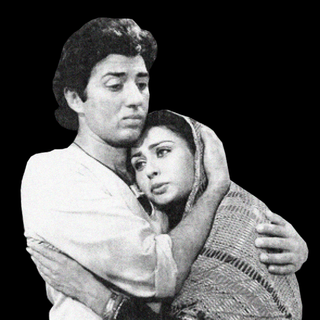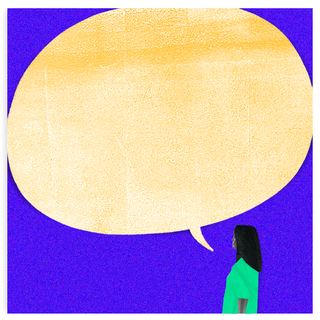
It’s Okay: To Let Friendships Go
Reassessing friendships is a marker of self-awareness — because people change and we must accept it.

In It’s Okay, we defend our most embarrassing, unpopular opinions.
One universaltruth that inspires a tide of emotions with overwhelming agreement is that a friendship breakup hurts more than a relationship one. It incisively cuts across love and loss, intimacy and vulnerability
There’s nothing very radical or jarring about this notion; we all live with ghosts of friends past and under the weight of platonic memories. No wonder our instinct is to preserve friendships. “Be slow to fall into friendship,” philosopher Socrates forewarned, “but when thou art in, continue firm and constant.” Nietzche also came up with: “Love is blind; friendship closes its eyes.”
Modern colloquialisms — arguably less inspired — still strum the old guitar of standing by your friend, come what may. When Serena and Blair fight for the 657th time in Gossip Girl, our hearts want the two women to bury all issues and live in blissful peace. The tussle between Aamir Khan’s Akash and Akshaye Khanna’s Sid in Dil Chahata Hain, too, amicably ends with a reunion of the two yaars.
I’m all for loyalty. I’m all for loving your friends and fighting for them too. But I’m wary of treating this feeling as an absolute norm — that friends are forever and we must treat them as constants.
To be opposed to the notion of “outgrowing” friends is understandable; we are averse to change of any kind. But arguably, we, the supposed guardians of friendships, don’t remain constant throughout our lives. My friend from college knows a different version of me than someone who met me two years ago would. Not only did I grow up, but they also did. Sticking in friendships as a courtesy is not only inauthentic, but does a disservice to people who invest their emotions and time in carving these relationships.
Then, reassessing friendships becomes a marker of self-awareness — because people change — and we must accept it. “It’s absolutely normal that relationships ebb and flow all throughout life,” said Shasta Nelson, a San Francisco-based author and speaker who specializes in friendship.
The crisis of modern friendships was most acutely felt during the lockdown when connecting with those we hung out with every day felt like a task. These friendships from our pre-pandemic social lives may not match with the emotional wavelength we are at now. Take Neha Chandra, for her, life before Covid19 feels like a distant dream. “It was a fast-paced life — going out, meeting people organically, not even thinking who I’m meeting or the connections I’m making,” the 26-year-old says. The post-2019 Neha thinks of that life, that bygone world, with amused fascination. Since then, there has been so much loss, she says, “loss of friends, loss of reality.”
Related on The Swaddle:
The Pandemic Has Changed Intimacy For Good
Moreover, there’s something so empowering about choosing the people in your life. Jobs, moving cities, settling down, starting a family — “these kinds of life experiences change your friendship networks, as you re-prioritize the people you want to spend your time with,” said Nelson. It becomes impossible to keep in touch with every person you used to know while there are so many pieces on the move. Reassessing then is a necessity; we curate “friendscapes” at any given point in life to ask “who’s close by, who do we want to be around, and who do we want to surround us?” This idea beautifully erects emotional boundaries that are needed as much in relationships as they are in friendships.
In some ways, the anxieties around retaining friendships also touch upon how we look at friends in the first place. The internet, social media, and online echo chambers give the impression that “true,” authentic friendship is a remnant of the physical world only. The idea seems to be that friendships today are more transactional and short-lived during the age of the internet. “[The notion is] that selfie–culture has turned us into narcissists who care more about managing our own PR than about being present with each other. Today’s friendships are somehow more conditional than in the past, as we organize ourselves online into‘echo chambers’; of like-minded individuals and reject differing views,” Rebecca Roache wrote in BBC.
This understandably makes us want to fight harder to keep the people in our lives. But while there is some truth to what Roache noted, friendship is not a dying breed of relationships. Emotional connections are still viable — and arguably, easier to tap into. None of this debases the virtue of friendships, if you don’t want it to.
And arguably, it is completely possible to have friends and relationships fade away without any ill feelings. Millions of Google hits are dedicated to answering how you can let friends go gently; or when it’s time to say goodbye to toxic relationships. Seekguidance from the words of the internet, or follow your gut and take the plunge.
I think of Aristotle and the notion of friendship he constructed. Friendship comes with certain virtues — empathy, reciprocity, self-knowledge, and participating in a shared life. At any point in time, if people in our lives seem distant and detached from these ideals, it may not be the worst idea to re-evaluate their role. Not all friendships are meant to last forever, and the passage to this realization slowly and swiftly becomes comfortable and easy.
To all those ex-friends, former acquaintances, andpeople who were important, I dedicate the ultimate breakup song of all time to your glorious memory: “You can go your own way/Go your own way.”
Saumya Kalia is an Associate Editor at The Swaddle. Her journalism and writing explore issues of social justice, digital sub-cultures, media ecosystem, literature, and memory as they cut across socio-cultural periods. You can reach her at @Saumya_Kalia.
Related


The Buzz Cut: First Ever Good Use Case for Metaverse Found as Singer Purchases ‘Balle Balle Land’
